Americans Are Leaving Christianity Because of Anti-LGBTQ Animus. Why Now?
As attitudes toward LGBTQ inclusion shift, growing numbers are deconstructing or abandoning their faith, despite the painful and often years-long process.
This story was originally written for Gay Times Magazine.
When Garth Huelskamp was on his Mormon mission at 19 years old, he journeyed through western Nevada, where he remembers meeting a lesbian couple.
While he remained tight-lipped, his companions quickly jumped into a conversation with them, speaking about how Jesus can save them from all sins, including homosexuality.
“[There was] always an elephant in the room,” he says.
That’s because at the time, Huelskamp knew he was gay. But like many queer religious people, he believed he could pray it away.
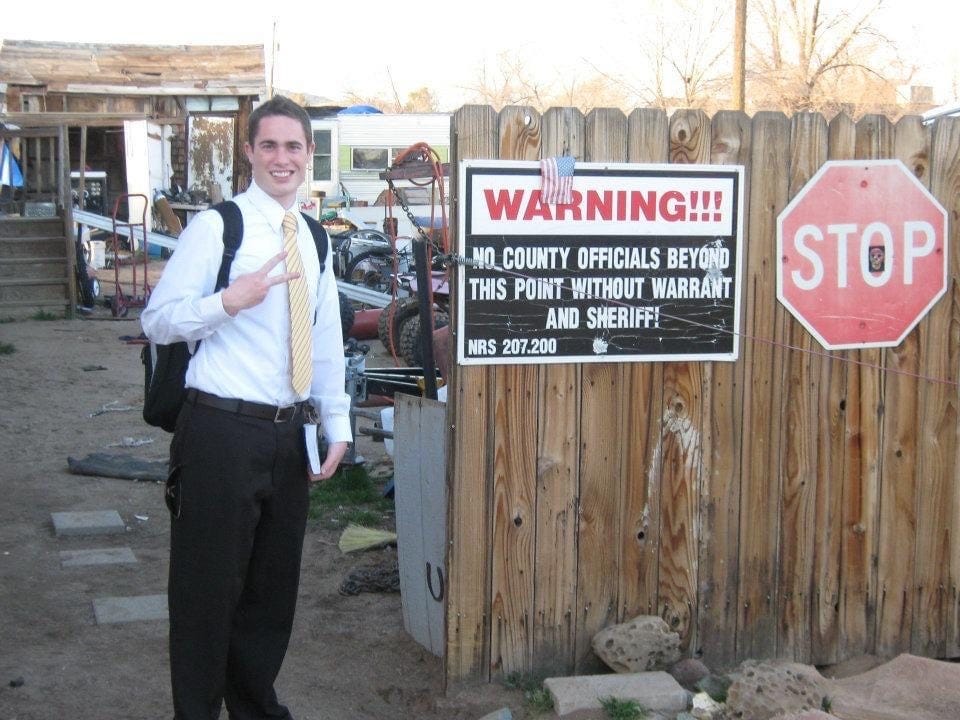
“I was hoping that I’d come up from my mission and be attracted to women and be able to live, like this very quintessential Mormon dream,” he told GAY TIMES and Uncloseted Media.
But after knocking on thousands of doors over the course of two years, Huelskamp had zero revelations from God.
After returning home to Utah, Huelskamp came out to his parents, both devout Mormons. Coming out to them wasn’t easy and he still maintains a difficult relationship with his father.
But that was just the beginning of the battle.
After years of rumination, he couldn’t bring himself to live as an openly gay man and be part of the Mormon Church. So he decided to leave.
The process—which took about five years—was far more challenging than being open about his sexuality. It included hours of therapy, countless conversations with friends and family, years of turmoil and cut-off relationships from friends and relatives.
“I still held a lot of beliefs and values that the Mormon community still had,” he says. “I had to internally question all of that; I had to question a lot of the narratives that I’ve been taught since I was literally a baby. I, quite literally, had to recreate myself from the ground up.”
Huelskamp, now 35 and working in human resources in Seattle, is not alone. In 2024, a Public Religion Research Institute (PRRI) study of 5,600 American individuals found a growing trend of Americans deconstructing their religion due to the treatment of LGBTQ people.
Forty-seven percent of adults deconstructed and left their faith due to these concerns, up from 29% who left in 2016. In addition, roughly 60% of people under 30 say they left religion for that reason.
Despite this, some conservative Christian religions are digging their heels into anti-LGBTQ rhetoric. Earlier this year, the Southern Baptist church endorsed a ban on gay marriage and called on the Supreme Court to repeal Obergefell v. Hodges.
Meanwhile, queer worshippers are increasingly welcomed by more affirming churches and liberal denominations of Christianity, like the Episcopalian church, which allows gay members to become bishops.
According to psychologist Darrel Ray, churches often bend the interpretation of religious text to remain relevant. “Churches follow the culture, cultures don’t follow churches,” says Ray, the president and founder of Recovering from Religion, a nonprofit organization that aids people through the process of leaving their religion.
“The culture makes a change, and then the church has to adjust or it goes extinct.”
U.S. Politics Are Driving People Away
The PRRI study found that one-fifth of Americans who left their religion did so due to their faith’s focus on politics.
“The trend seems to be … substituting rigid fundamentalist beliefs for more liberal, spiritual ideas,” David Teachout, a mental health therapist and a member of the Secular Therapy Project, told GAY TIMES and Uncloseted Media. “This may be due to the association being made between those in fundamentalist groups having an outsized role in American politics, leading to policies that are seen as destructive.”
The line between church and state in the U.S. has grown increasingly blurred. In May, President Donald Trump signed an executive order establishing a religious liberty commission and questioned the necessity of keeping religion out of government.
Homophobia and Religion
Beyond politics, many interpretations of religious texts carry homophobic implications. For example, the biblical verse Leviticus 18:22 says “Thou shalt not lie with mankind, as with womankind; it is an abomination,” and is interpreted by many Christians to mean that homosexuality is sinful.
“This narrative of immorality and sinfulness would be where the root of the tension might come from,” Panagiotis Pentaris, an associate professor of social work at Goldsmiths, University of London, told GAY TIMES and Uncloseted Media.
That’s the case for many in the Mormon church. In 2015, Elder D. Todd Christofferson, a member of the second-highest governing body in the church, stated that they regard gay marriage as a “significant, serious kind of sin that requires Church discipline.”
Huelskamp recalls learning that homosexuality was a sin at age 8 during his one-on-one worthiness interview with a bishop, a required step before baptism. Part of that interview required Huelskamp to say he lived by the “law of chastity,” which includes no sexual activity outside of marriage to a woman, no porn and no masturbation.
More than a decade later, while studying at Brigham Young University (BYU), a college sponsored by the Mormon church, Huelskamp was subject to the school’s Church Educational Standards Honor Code, a set of rules that condemned homosexuality.
The “Same Sex Romantic Behavior” section of the code states that “living a chaste and virtuous life also includes abstaining from same-sex romantic behavior.” In the section’s FAQ, one question addresses whether or not LGBTQ students can be disciplined for dating, handholding and kissing, to which it answers that “each situation will be handled on a case-by-case basis to help each student feel the love of the Savior.”
“The last two years I was there, I was out to close friends and family and because of BYU and their rules, I was looking at losing my housing situation. I was looking at being expelled … I was looking at losing my social standing in the community as well as my family’s,” Huelskamp says.
All of these factors are compounded by more insidious, superficial instances where conservative denominations of Christianity appear open to LGBTQ people, but they’re not.
“Many religions will continuously share the statement that ‘we are very inclusive,’” says Pentaris. But in reality, this is not true.
Huelskamp remembers many of those on his mission using a non-confrontational approach to address homosexuality. “Instead of saying, ‘Hey, you’re going to hell,’ … they’re going to say, ‘Hey, we’d love to teach about the plan of salvation and how Jesus can cover all sins, including homosexuality.’”
It was all of these factors that led him to officially leave the church in 2017.
Other reasons people leave or go to affirming churches
It’s not just the church’s stance on LGBTQ issues that are pushing Americans to exit—31% of surveyed individuals say they departed their faith due to clergy sexual abuse scandals and 32% cited mental health issues.
And a 2024 study by the Survey Center on American Life found that young women are disaffiliating more so than young men, with nearly two-thirds of Gen Z women surveyed saying that churches do not treat men and women equally.
Travis McKie-Voerste, director of the Secular Therapy Project, says he has encountered many young people fed up with faith due to “low-cred behaviors,” where adults and prominent religious figures fail to practice what they preach.
“If [someone has] parents that say, ‘As Christians, it’s important to love everybody,’ and then they see very different behaviors acted out … I think [they] start that questioning [and say] ‘This doesn’t feel right,’” he says.
Social media and the internet have given easy access to those who are questioning their religious beliefs and want to explore leaving their faith.
“They might pop things into YouTube and [explore] ‘what’s the evidence that God exists?’” he says.
McKie-Voerste has worked with individuals who have started to question their faith in their preteens or younger. Many at this age continue to participate out of habit or parental pressure, but possess no religious belief.
He says that it’s more common for people in their 20s to leave their religion as that’s when most leave their hometown and have the space to explore their identity.
However, Ray says it’s also common to see individuals leave their faith later in life. “We have had 80-year-old people [leave],” he says. “It happens often.”
Leaving Isn’t Easy
Leaving your religion behind often comes with mental anguish, broken relationships and years trying to overturn an ideology that was, at a young age, cemented into one’s consciousness.
“I had to dig deep and really listen to my own personal voice and not the proverbial jargon that you’re programmed to think and feel,” says Huelskamp.
The more fundamentalist the beliefs, the harder it is to leave, according to Ray. He says that those who were raised in a fundamentalist religion often develop a trauma response in their healing process, while those raised in a more liberal sect don’t often experience that same response.
“When a person finally realizes what’s happened to them in their childhood training and church and religion, they go through grief,” says Ray. “They were in a community that they thought was loving and supportive of them until … they realize, ‘they hate me as much as they used to say they love me.’”
This was the case for Huelskamp. “Breaking myself out of the Mormon mentality was excruciating,” he says. “It felt like I had the rug ripped out from underneath my feet.”
What pushed Huelskamp to formally leave the church was his love for his partner. He was engaged and didn’t want to undergo disciplinary action from the church on his wedding day.
“I did not want our wedding day to be overshadowed by my excommunication from my childhood faith,” he says.
Officially leaving the faith requires removing one’s records and information from the church. And so, he had a lawyer help him do exactly that.
Huelskamp, now eight years removed from Mormonism and a father, says that the most prominent emotion he feels toward his former religion is anger.
“Imagine if you were going in a very intense long-term relationship with someone [and] had a really nasty divorce, and then you find yourself in a world where all of your family and friends, quite literally worship your ex,” he says. “And so [I feel] a lot of anger in that regard.”
Huelskamp says there were also periods where he felt isolation, which is common for folks who leave their religion as they are also losing a community and a belief system.
Since leaving, he has cut off many close friends and family who remain in the church, as he believes their participation is an affront to his identity. Today, he only remains in contact with family and friends who have also left.
“Essentially, my Mormon social sphere went from 500-plus people over the course of my adolescence to about 20 to 30 people,” he says.
But for him, the quality of these relationships is invaluable. “Having that support system and having friends that—essentially we’re [now] trauma bonded—they are some of the most beautiful people I’ve ever met,” Huelskamp says. “It’s a silver lining.”
Even for non-LGBTQ people who leave religion, Ray says the journey may take more than five years due to that feeling of loss and the separation from community.
The goal of organizations like Recovering From Religion is to help those who have separated from their faith find a sense of belonging, whether that be with other unaffiliated folks or some other type of community, like student alliances at college.
Huelskamp hopes that younger generations can pave a path forward for the church. At the same time, he recognizes the church’s rigid position on gay relationships and doesn’t believe a change in leadership will extinguish homophobic beliefs.
Dallin Oaks is the next in line to assume leadership of the Mormon church following the death of President Russell M. Nelson last month. Oaks, 93, has a history of anti-LGBTQ comments and activism, and he played a key role in the church’s 2015 gay exclusion policy.
Huelskamp maintains a spiritual sense of self but has steered clear of organized religion. He thinks that unless something changes inside the church, Mormonism will become increasingly obsolete.
“If they can’t acknowledge their own faults, they’re not going to be able to shape a future for their religion,” Huelskamp said. “It’s got to be inclusive.”
If objective, nonpartisan, rigorous, LGBTQ-focused journalism is important to you, please consider making a tax-deductible donation through our fiscal sponsor, Resource Impact, by clicking this button:



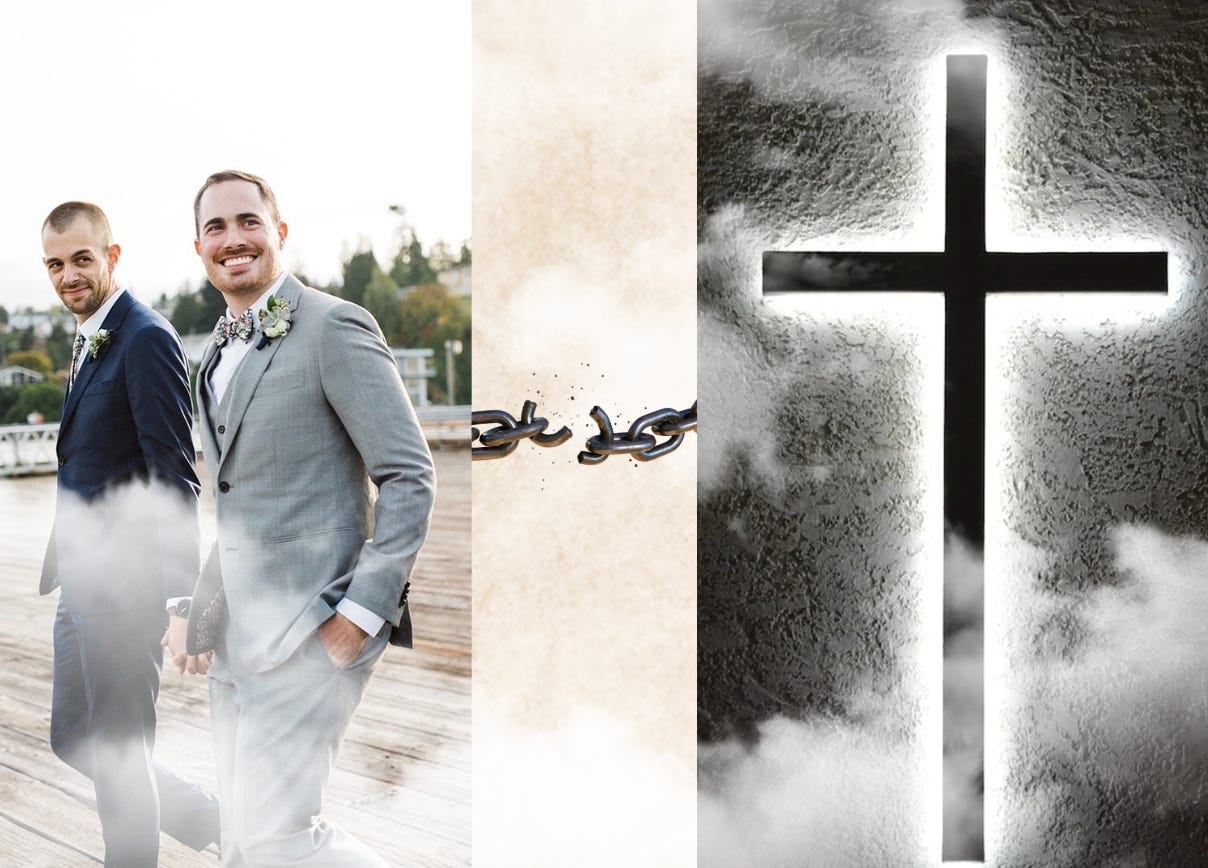
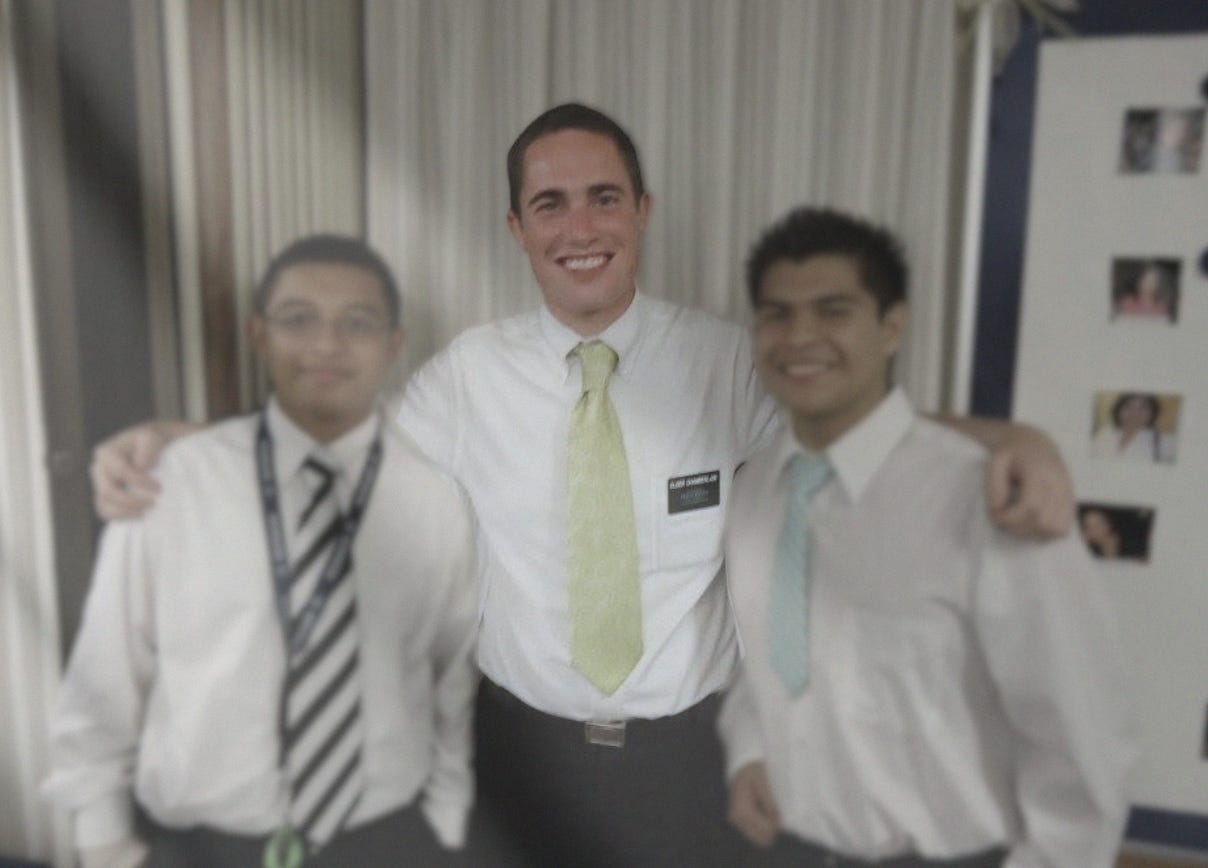
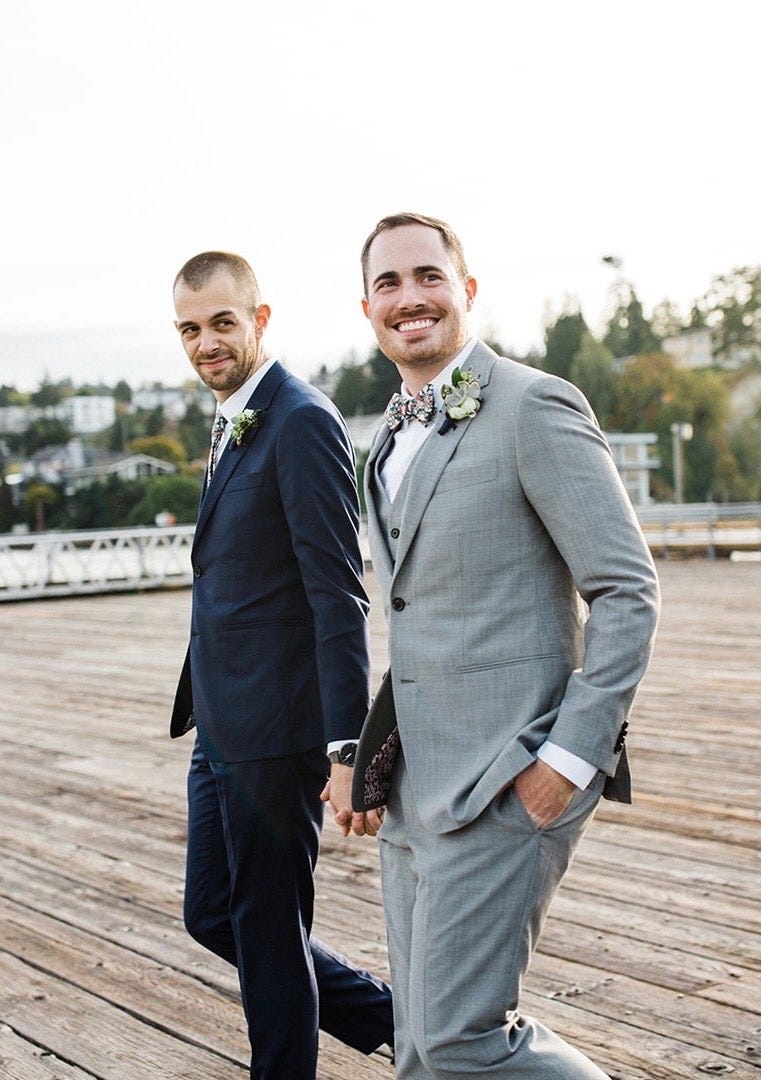
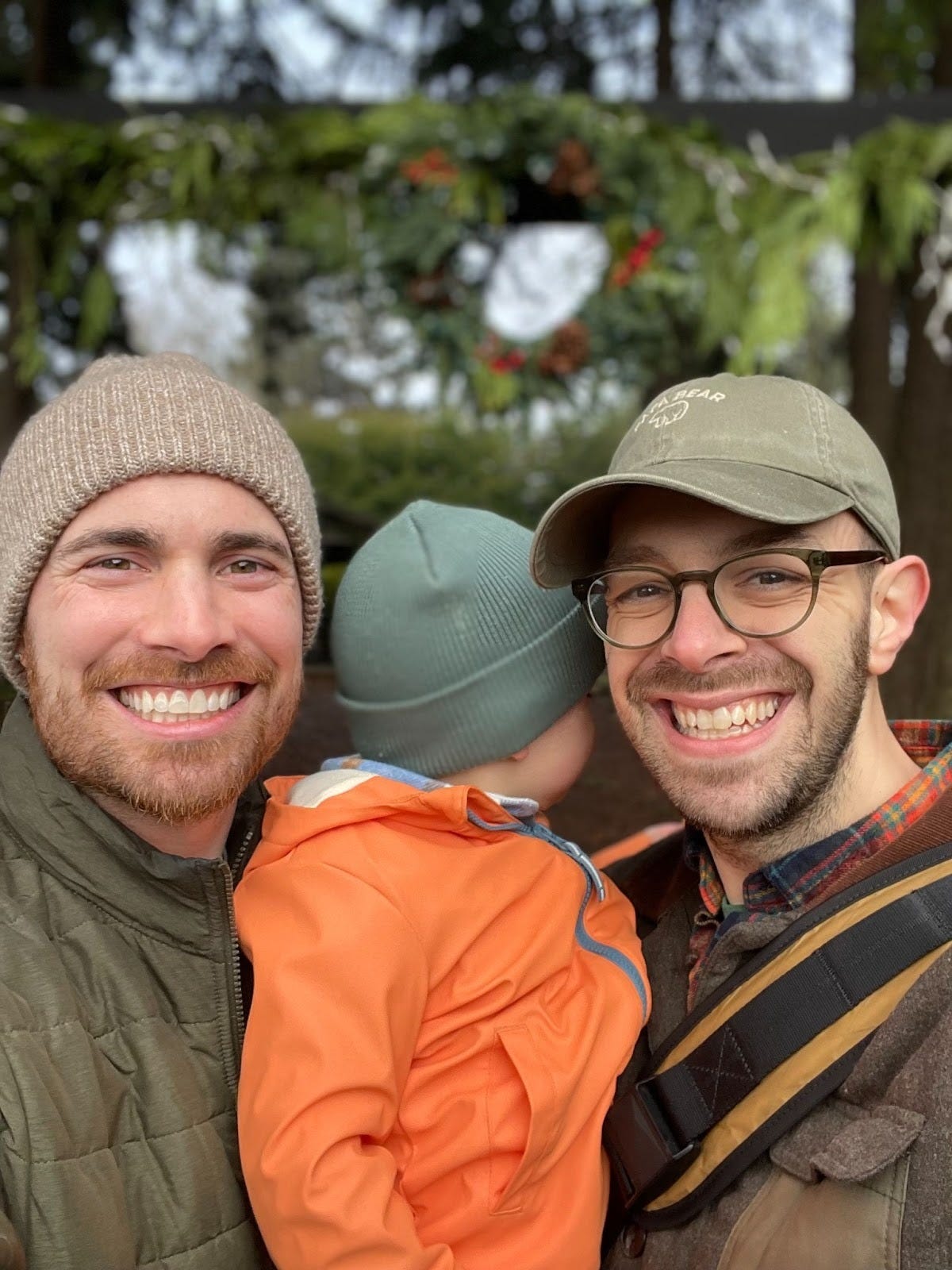
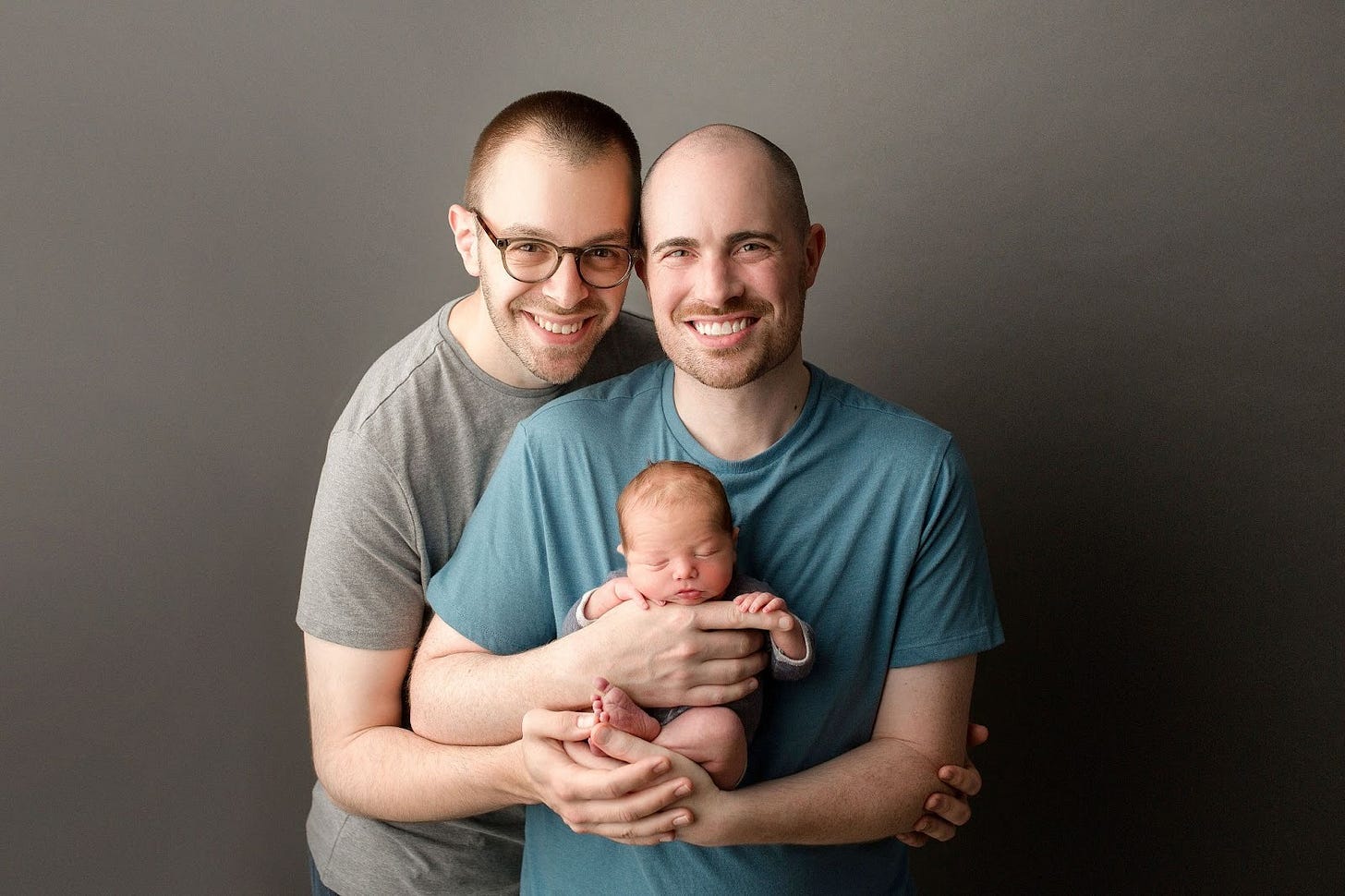

Thanks for this thoughtful piece! We just published a journal special issue on “Trans-Spiritualities” that takes on some of the struggles of us trans-queer folk in religious places, but also how we’ve used religious ritual and community in our transitions. https://www.aprilonline.org/project/vol-75-no-1/
Unfortunately it's not just the Mormon Church that treats people differently if they don't buy into the entire system. I will never understand how a parent or any family member can turn away from you just because you love somebody of the same sex. Some of these religions and I'd say especially in the US go really over board in their belief. It's akin to a cult. Leaving it is akin to leaving a cult, that should tell you something. I myself don't believe in god. I was raised Roman Catholic but my parents weren't "religious" about it lol. They just wanted me to be a good person so learning the 10 commandments, and trying not to break too many of them, was all they asked of me. When I was 13 I quit going to mass and I told my parents I didn't want to go anymore because I didn't believe in it. I had lost my faith. Or as someone told me "I've been 40 years Religion free" ('-') in my case it's 63 years. I don't care if someone wants to go that route, I just wish they'd be kinder and dare I say it more "Christian" in their beliefs. So many of them are extremely judgemental, which to me defeats all that love and mercy you are supposed to show to all your fellow man. I look at all the trump "handmaidens" he surrounds himself with and they invariably wear crucifixes, wether large or small but always prominently. Then they spout the most vile things about their citizens, with glee! Thanks for this story Jake. Maybe someone will read it and realise life doesn't have to be this way. You can live however you want so long as you can keep the basic regards of human kindness in your words and actions.